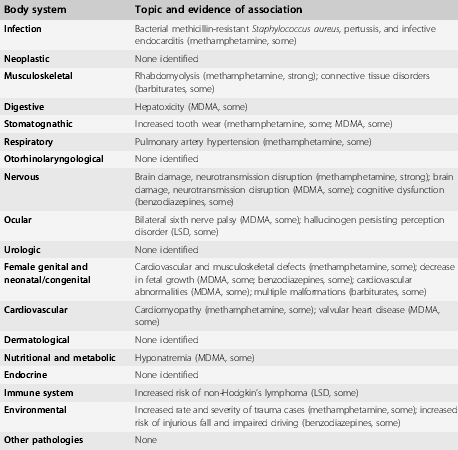Mark Halsey is a licensed therapist, founder, and chief editor of Clean Break Recovery. With over a decade of addiction treatment experience, Mark deeply understands...Read more
Barbiturates are a powerful class of drugs that have been used for decades to treat a variety of medical conditions. However, recent studies suggest that these drugs may also act as a stimulant. In this article, we will explore the potential benefits and risks associated with barbiturates as a stimulant, and how it may affect your health.
No, Barbiturates are not a stimulant. Barbiturates are a class of drugs used to treat anxiety, insomnia, seizures, and other medical conditions. They work by depressing the central nervous system and slowing brain activity. Barbiturates are considered to have a high potential for abuse and can cause physical and psychological dependence when used in high doses or for prolonged periods of time. They are usually prescribed for short-term use only and can be very dangerous if not used as directed.

What Are Barbiturates?
Barbiturates are a group of drugs that are used to treat anxiety and sleep problems. They are also prescribed to treat seizures, migraines, and other medical conditions. Barbiturates work by slowing down the central nervous system, and they can be habit-forming. These drugs can be dangerous if taken in large or excessive doses.
Types of Barbiturates
Barbiturates can be classified into two main types: long-acting and short-acting. Long-acting barbiturates are designed to act for longer periods of time, while short-acting barbiturates are designed to act for shorter periods of time. Some common barbiturates include phenobarbital, pentobarbital, and butabarbital.
Are Barbiturates Stimulants?
No, barbiturates are not stimulants. Stimulants are drugs that increase alertness and energy levels. Barbiturates have the opposite effect, and they are used to reduce anxiety and help people sleep. Barbiturates are classified as depressants, and they can be dangerous if taken in large doses.
Side Effects of Barbiturates
Barbiturates can cause a range of side effects, including drowsiness, confusion, and impaired judgment. They can also cause dizziness, headaches, and blurred vision. Long-term use of barbiturates can lead to physical and psychological dependence, as well as an increased tolerance for the drugs.
Risks of Barbiturate Abuse
Barbiturate abuse can have serious health consequences, including liver damage, respiratory depression, and even death. Barbiturates can also interact with other drugs and alcohol, which can make the effects of the drugs even more dangerous. It is important to take barbiturates only as prescribed by a doctor, and to never take more than the recommended dose.
Treatment for Barbiturate Abuse
Treatment for barbiturate abuse typically involves detoxification, counseling, and medication. Detoxification is the process of removing the drugs from the body, and it can be done in a hospital or outpatient setting. Counseling can help individuals address the underlying issues that led to the abuse, and medications can be used to help manage withdrawal symptoms.
Conclusion
Barbiturates are a group of drugs that are used to treat anxiety and sleep problems. They are classified as depressants, and they are not stimulants. Barbiturates can cause a range of side effects and have serious health consequences if abused. Treatment for barbiturate abuse typically involves detoxification, counseling, and medication.
Few Frequently Asked Questions
What are Barbiturates?
Barbiturates are a class of drugs that act as central nervous system depressants, or sedatives. They are used to treat a variety of conditions, including anxiety, insomnia, and seizures. Barbiturates were first developed in the early 1900s and are now considered to be an outdated medication due to the potential for abuse and overdose.
What are Stimulants?
Stimulants are drugs that increase activity in the body, such as alertness, concentration and energy. These types of drugs are commonly used to treat conditions such as attention deficit hyperactivity disorder (ADHD) and narcolepsy. Stimulants can also be abused and can have serious side effects and potential for addiction.
Is Barbiturates a Stimulant?
No, barbiturates are not a stimulant. As mentioned, barbiturates are a class of drugs that act as central nervous system depressants, meaning they have a calming or sedative effect on the body. Stimulants, on the other hand, increase activity in the body.
What Are the Side Effects of Barbiturates?
Common side effects of barbiturates include drowsiness, dizziness, confusion, lightheadedness, and difficulty concentrating. Barbiturates can also cause slowed breathing, low blood pressure, and slowed heart rate. Other more serious side effects include addiction, overdose, and death.
What Are the Side Effects of Stimulants?
Common side effects of stimulants include increased heart rate and blood pressure, insomnia, restlessness, and anxiety. Stimulants can also cause difficulty concentrating, irritability, and agitation. Long-term use of stimulants can lead to addiction and other serious side effects such as psychosis, seizures, and heart problems.
What Are the Risks of Taking Barbiturates?
Barbiturates are considered to be an outdated medication due to their potential for abuse and the risk of overdose. Taking barbiturates can lead to dependence, tolerance, and addiction. Barbiturates can also cause slowed breathing and low blood pressure, which can lead to coma or death.
1956 “ THE DANGEROUS DRUGS ” ANTI-DRUG FILM ON BARBITURATES AND AMPHETAMINE ABUSE XD46704
In conclusion, barbiturates are not a stimulant. They are a type of sedative-hypnotic drug that can cause drowsiness and relaxation, and should be used with caution due to their potential for abuse and addiction. Barbiturates should never be taken without a doctor’s prescription and should be taken only as directed. With proper use and monitoring, barbiturates can be an effective treatment for certain medical conditions, but they can also be dangerous if misused.
Mark Halsey is a licensed therapist, founder, and chief editor of Clean Break Recovery. With over a decade of addiction treatment experience, Mark deeply understands the complex needs of those struggling with addiction and utilizes a comprehensive and holistic approach to address them. He is well-versed in traditional and innovative therapies, including cognitive-behavioral therapy, motivational interviewing, and mindfulness-based interventions.
More Posts